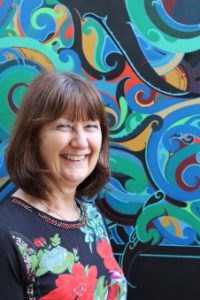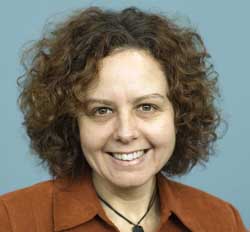Te Tumu’s “new” lecturer
Te Tumu is excited to announce the appointment of a “new” lecturer. Of course, many will already know Dr Erica Newman, as she has studied and worked in Te Tumu in various roles over many years. Moving into a confirmation-path lecturer’s role in the Indigenous Development programme is the culmination of all her hard work.
Erica’s research has focused on children and adoption. She undertook her BA (Hons) in Te Tumu, completing a dissertation on Māori, European and “half-caste” children in New Zealand from 1840-1852, with a specific focus on the care of children. She followed this with her MA, a history of adoption/whāngai within Aotearoa New Zealand, including the concept of “whāngai”. This research contains a special emphasis on transracially adopted Māori children and its effects on future generations, something pertinent to Erica’s own whakapapa. Her PhD, completed in 2018, looked at the adoption of children in Fiji during British colonial rule of 1874- 1970, including both indigenous and colonial practices and institutions. Erica has also attended various conferences, and published on her research, including an article on transracial adoption in the prestigious American Indian Quarterly in 2013.
More recently Erica has managed to get through to the second stage of a Fast Start Marsden application on the historical effect of adoptions for descendants of Māori adoptees, how adoption not only affects the adoptee, adoptive parents and biological parents but the ripple effect carried down to following generations. This includes the importance of whakapapa in how Māori adoptees are able to, or not able to, identify themselves as Māori. We have our fingers crossed that Erica’s Marsden bid is successful, as this will be exciting and useful research.
Erica has managed a strong research trajectory despite a heavy teaching load. She has long been responsible for Te Tumu’s giant MAOR102 Māori Society paper, managing hundreds of students each year and a troupe of tutors. Last year she was part of team organising Te Tumu’s modules in the (even larger) POPH192 Population Health paper. But since 2008 Erica has also taught in a variety of other papers in all of Te Tumu’s programmes over the years, as well have undertaken supervision duties in the Master of Indigenous Studies programme. We’ve seen a number of innovations, such as an in-house journal for the MAOR202 Tikanga and Māori paper, to give undergraduate students an idea of what it is like to publish an article, and developing special tutorials for MAOR102 students who come to university already very knowledgeable on tikanga Māori.
So in many ways, not too much is going to change for Erica—she will still be working flat-tack on her research and teaching. It’s just wonderful that we can all celebrate in her success.
Fingers Crossed for Marsden Second Round
Te Pūtea Rangahau a Marsden/Marsden Fund is one of the most prestigious opportunities for externally-funded research grants, and highly competitive. The grants fund three-year research projects, as well as channel some income into the university. The Marsden Fund operates as a two-stage process. Although the quality of all the initial applications (where the research idea is pitched) tends to be very high, most applicants do not get invited to submit a full proposal. In the Humanities Panel just 26.1% got through to the second round, and in Social Sciences it was 22.6%. At the second round successfully gaining a grant then becomes a (roughly) 50/50 chance. So we can see, winning a Marsden is very hard, and getting through to the second round is worth acknowledging and celebrating.
It will now be an anxious time for our Te Tumu staff, Dr Lyn Carter and Dr Erica Newman, involved in preparing their full proposals.
Dr Lyn Carter is part of larger team led by Dr Pedersen Zari of Victoria University, with the project: Empowering Oceania Nature-based Urban Design: Knowledge sharing, Leadership and community Partnering in Climate Change Adaptation. This is a “standard” Marsden application, i.e. submitted by experienced researchers, most often as a team.
Summary: Climate change impacts settlements of Oceania, including Aotearoa, in significant ways. ‘Nature-based solutions’ (NbS) have great potential to address these impacts. Incorporating traditional knowledge into NbS will offer more culturally appropriate and long-term solutions, however links to wellbeing agendas have not been fully explored. This research investigates how well being can be strategically linked to ecologies, and how this can be harnessed to create ecologically resilient ‘Ocean cities’. Research into how the human-nature-climate nexus can be leveraged to enhance the effectiveness of NbS will make a significant contribution to the urban climate adaptation research in Aotearoa, the Pacific, and globally.
Dr Erica Newman project is a “fast-start” application, which are for early career researchers, often working by themselves. Her topic is: Journey Home: Descendants of Māori adoptees search for their tūrangawaewae.
Summary: Māori adoptees who have no knowledge of their Māori heritage pass the unknown to their descendants. Focusing on these descendants, this project will explore; how they identify with their taha Māori, avenues they have taken to connect to their taha Māori, and how they are accepted by their whānau and hapū. I will follow participants on their journey of discovery and will examine hapū membership eligibility. Oral narratives will be the primary base for this project with published and unpublished sources used to support and highlight issues the participants encounter. This will begin a new area of research that will highlight the issues of transracial adoption on identity and well-being for descendants of Māori adoptees in Aotearoa New Zealand. [Advisor: Associate Professor Angela Wanhalla.]
We all have our fingers crossed that Erica and Lyn’s projects make it through.




